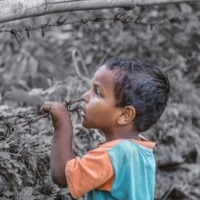Deadline: 31 January 2020
CIIE.CO is currently seeking proposals for the ‘Bharat Inclusion Research Fellowship 2020’. Supported by the Bill and Melinda Gates Foundation (BMGF), Michael and Susan Dell Foundation (MSDF), JP Morgan, Omidyar Network and Open Society Foundation, CIIE.CO set up the Bharat Inclusion Initiative in 2018.
The Fellowship program aims to build knowledge and foster innovation and entrepreneurial activity directed towards improving financial inclusion and livelihood for the materially poor in India. The Initiative is undertaking a continuum approach that extends across ecosystem evangelisation, research, use case identification and development, and market making.
Research under this program is building strong foundations of in-depth understanding of the needs, gaps, inclinations, habits, and preferences of the lower and middle income segments in India. Research fellowships are primarily aimed at identifying gaps and potential use cases that enhance the financial inclusion and health of the underserved segments. In the past, fellowships have delved into the domains of financial literacy, graphical design, open banking, adoption of digital financial services, and financial diaries of the urban poor.
For the Bharat Inclusion Research Fellowship 2020, they invite proposals along the following suggested questions. They are also open to receiving proposals outside this list but necessarily in the domain of financial inclusion of the underserved in India:
- Gig and temporary workers
- What is a more India-relevant, data-backed understanding of the gig worker and the gig economy?
- What are the mechanisms to enable better financial health of a gig worker’s household?
- What are the challenges experienced by workers when switching between employers while doing the same task (eg. delivery, driving etc)?
- How can workers own their data and employment histories when migrating between gigs? What are the mechanisms that can enable this between employers?
- What are the needs of employers and their models of engaging with this workforce?
- How can income volatility and social security of gig workers be sustainably addressed?
- How can social security measures (such as insurance, pensions etc.) that are typically delivered through an employer, be reached to workers that aren’t engaged with one organization?
- Disentangling the growth of MSMEs
- What are the biggest challenges facing micro, small and medium enterprises?
- How do MSMEs access credit? What are the needs and sources of credit? What determines the choice of source(s)?
- Given the challenges associated with accessing credit, what are the alternate models of finance that are relevant for these enterprises?
- How do entrepreneurs navigate the personal liability linked with accessing credit?
- How do micro and small enterprises meet the compliance and regulatory requirements, particularly given their constrained resources?
- Insurance for the underserved
- What insurance products and models, beyond sachets and bundles, are suited for the underserved? How are these different across rural and urban populations?
- How can claims processes be made more effective for microinsurance products?
- What premium payment models are most suited to microinsurance products?
- How can community-driven insurance be created and delivered at scale?
- What are the most effective distribution methods to reach insurance to the underserved in both rural and urban India?
- Savings and investment behaviour
- How do households with volatile or seasonal incomes undertake savings and investments?
- How do households save to acquire assets such as gold, motor vehicles, real estate?
- How can lower income households be enabled to undertake savings sustainably?
- What investment instruments are best suited for the needs of lower and middle income households?
- How can savings and investment products be reached most effectively to the underserved segments in both rural and urban India?
Expected Output
The fellowships are primarily aimed at identifying novel use cases. Fellows will also be encouraged to present their research on various forums and share interim insights in publishable formats. To add to the learning of the ecosystem, all insights and data generated under the Fellowship will be open access and disseminated through various platforms of Bharat Inclusion Initiative.
Duration
Fellowships could last from 3 to 12 months.
Benefits
- Research expenses including those incurred for instrument development, data collection and analysis, publication, and dissemination will be supported under the program.
- Fellows will also receive a modest monthly stipend. In addition, support to fellows will include network connects, coaching on relevant topics (such as design thinking, research methods) editing and graphical design, and others inputs, as necessary.
- Insights generated from the fellowship studies will be published and promoted by the Bharat Inclusion Initiative.
- Fellows will also have the opportunity to mentor or partner with entrepreneurs working on similar gaps or use cases.
Eligibility Criteria
Potential Applicants:
- Academics and researchers with interests in financial inclusion and related domains are welcome to apply for the fellowship.
- They also encourage entrepreneurs, managers and specialists working in financial inclusion or fintech sectors and with some demonstrated research capability to apply for this fellowship.
For more information, visit https://bharatinclusion.ciie.co/pdf/20191128_CallForProposals_EMF.pdf









































